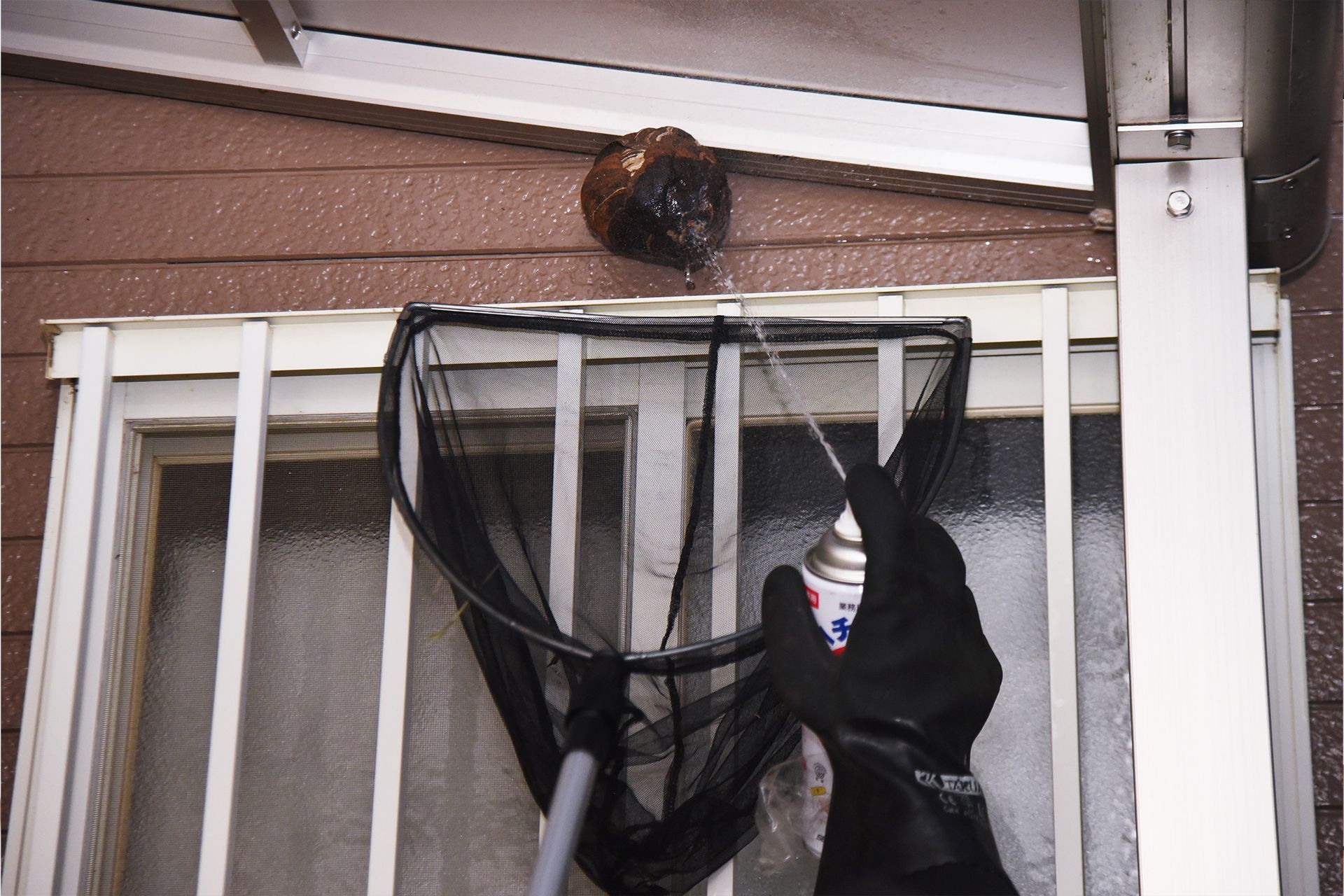Preventive Measures to Keep Bees, Wasps, and Hornets Away

Bees, wasps, and hornets are pollinators in our ecosystem. However, having their nests near or inside your home can pose risks. Their stings may cause reactions in some people and lead to painful encounters for others.
It's crucial to prevent these insects from making your home their habitat and ensure a cozy environment.
This article will explore ways to keep bees, wasps, and hornets away from your property. We'll share tips on deterring these stinging insects and reducing the likelihood
of encountering them around your home.
Understanding the Problem: Why
Bees, Wasps, and Hornets Nest Near Homes
1. Attraction Factors
Bees, wasps, and hornets are attracted to certain features around homes, including:
- Food Sources: Sweet foods, open garbage bins, pet food, and outdoor dining areas.
- Shelter: Eaves, attics, sheds, and other secluded spots provide ideal nesting sites.
- Water Sources: Bird baths, pools, leaky faucets, and standing water can attract these insects.
2. Common Nesting Sites
- Eaves and Attics: Wasps and hornets often build nests under eaves and inside attics.
- Trees and Bushes: Bees and wasps may build nests in trees, shrubs, and bushes.
- Ground Holes: Some species of wasps and hornets create nests in abandoned rodent burrows or other ground holes.
Understanding these factors can help you proactively prevent bees, wasps, and hornets from nesting near your home
Preventive Measures to Keep Bees, Wasps, and Hornets Away
1. Eliminate Food Sources
One of the most effective ways to deter these insects is by removing potential food sources:
- Cover Trash Cans: Use lids on outdoor garbage bins and ensure they are tightly sealed to prevent access.
- Clean Up Food and Drinks: Clean up any food and drink residues promptly after outdoor meals.
- Store Food Properly: Keep pet food and birdseed in sealed containers to avoid attracting insects.
Minimizing food sources reduces the likelihood of bees, wasps, and hornets lingering around your home
2. Seal Entry Points
Prevent these insects from entering your home by sealing potential entry points:
- Repair Cracks and Gaps: Inspect your home for cracks and gaps in the walls, eaves, and roof, and seal them with caulk.
- Install Screens: Use screens on windows and doors and repair damaged ones to prevent insects from flying inside.
- Check Vents: Ensure attic and crawl space vents are covered with mesh screens to block entry.
Sealing entry points helps keep bees, wasps, and hornets out of your home and eliminates potential nesting sites
3. Remove Potential Nesting Sites
Discourage nesting by removing or modifying potential nesting sites around your property:
- Trim Trees and Bushes: Regularly trim trees and bushes to reduce the likelihood of building nests in these areas.
- Remove Old Nests: Remove old, abandoned nests to deter bees and wasps from reusing them.
- Secure Sheds and Garages: Keep sheds and garages closed and sealed to prevent nesting inside.
Removing potential nesting sites makes your property less attractive to bees, wasps, and hornets
4. Use Natural Deterrents
Natural deterrents can help repel these insects and prevent them from nesting near your home:
- Essential Oils: Peppermint, eucalyptus, and citrus oils can effectively repel bees and wasps. Mix a few drops with water and spray around entry points and potential nesting sites.
- Herbs: Planting herbs like mint, thyme, and citronella can help deter bees and wasps from your garden and outdoor areas.
- Vinegar Solution: A mixture of vinegar and water can be sprayed around areas where these insects are known to frequent.
Using natural deterrents provides a chemical-free way to keep bees, wasps, and hornets away from your home
5. Install Fake Nests
Wasps and hornets are territorial and may avoid areas where they see other nests:
- Fake Nests: Hang up fake wasp or hornet nests around your property to deter them from building actual nests nearby.
Fake nests are a simple and effective way to discourage bees, wasps, and hornets from nesting in your area
6. Maintain Your Property
Regular property maintenance can help keep these insects at bay:
- Clean Gutters: Keep gutters clean and debris-free to prevent wasps and hornets from building nests.
- Fix Leaks: Repair any leaks in outdoor faucets, hoses, and pipes to eliminate water sources.
- Store Wood Piles Properly: To prevent nesting, keep wood piles away from your home and off the ground.
Maintaining your property helps create an environment less attractive to bees, wasps, and hornets
7. Use Insect Traps
Insect traps can help reduce the population of bees, wasps, and hornets around your home:
- Commercial Traps: Purchase commercial traps designed for bees, wasps, and hornets and place them in areas where these insects are active.
- DIY Traps: You can also make your traps using a mixture of sugar, water, or soda and place them in a small entry hole container.
Using insect traps is a practical way to control the population of these insects and prevent them from becoming a problem
8. Call Professional Pest Control
Suppose you have a severe infestation or cannot control the problem alone. In that case, it's best to call a professional:
- Pest Control Services: Professional pest control companies have the expertise and equipment to remove nests and implement long-term preventive measures safely.
Professional pest control services provide a reliable solution for dealing with bees, wasps, and hornets, especially in severe cases
Conclusion
Preventing these insects from nesting near your home involves a mix of actions and regular upkeep. You can deter them by removing food sources, sealing entry points, eliminating spots, and using natural repellents. Regular maintenance of your property, along with the use of insect traps, can help control their population.
For infestations or if you are unsure how to handle the situation, it's best to seek help from pest control services like
Pest X Team. They have the knowledge and tools to address the issue efficiently, ensuring your home remains a haven.
To safeguard your household and loved ones from the dangers of bees, wasps, and hornets. Promote a living space. You can relish your areas without fretting about bothersome stinging bugs by remaining observant and taking measures.
Disclaimer: The information on this website and blog is for general informational purposes only and is not professional advice. We make no guarantees of accuracy or completeness. We disclaim all liability for errors, omissions, or reliance on this content. Always consult a qualified professional for specific guidance.




